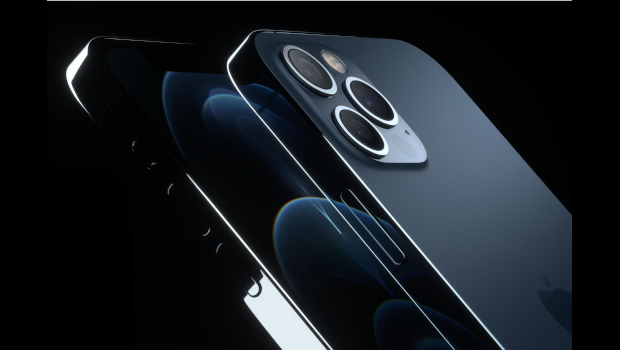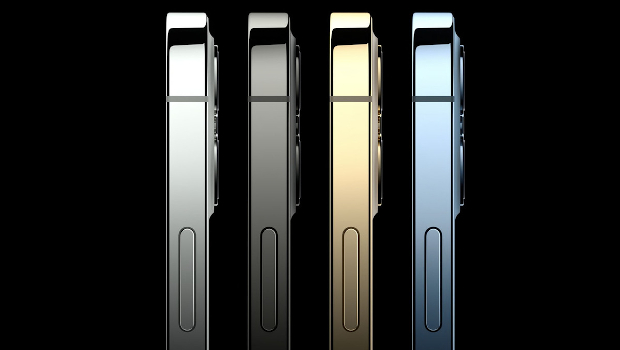
The six most important things you need to know about the iPhone 12 Pro
Apple has just taken the wraps off the iPhone 12 and iPhone 12 Pro. Each are available in two sizes (the regular iPhone 12 now comes in a 6.1″ model and a 5.4″ ‘mini’), but as was the case with the iPhone 11, the Pro models have some differences that set them apart and help justify their higher price tag. Here are the most important things you need to know.
It’s got a new, slightly larger design
As with the iPhone 11 Pro, the iPhone 12 Pro comes in two sizes. This year, the display on the two models measure 6.1″ and 6.7″, up from 5.8″ and 6.5″. (Bear in mind that a 6.1″ display is the same size as the regular, non-Pro iPhone 11.)
This means the phone bodies themselves are a bit larger as well, though there is less of a bezel area around the display, so it’s not as much larger as you might think, just a millimetre or two taller and wider. With a thickness of only 7.4mm, the iPhone 12 Pro is even thinner than the iPhone 11 Pro’s 8.1mm body.

The sides of all the iPhone 12 models are now flat, mimicking the design of the iPad Pro. They’re available in four colours: Silver (white), Graphite, Gold, and Pacific Blue (replacing Midnight Green on the iPhone 11 Pro).
The cameras get a big upgrade
The iPhone 12 Pro can shoot night mode photos on the wide, ultrawide, and even the front camera now (but still not on the telephoto camera). And Deep Fusion now works on all four cameras. There’s a new improved seven-element lens on the main wide camera and a wider f/1.6 aperture to let in more light, improving low light performance.
The larger iPhone 12 Pro Max variant has a 47% larger sensor on the main wide camera, which means bigger 1.7 micron pixels. Combined with the larger aperture, Apple says it produces 87% better low-light photos. The telephoto lens on the Max is longer, too – 65mm, or about 2.5x, instead of 52mm or 2x on the regular Pro.
The Pro Max uses sensor-shift stabilisation, which should produce clearer and more detailed shots, especially in low light.
Thanks to the new LiDAR sensor, the iPhone 12 Pro can focus better in dark environments, and can shoot night mode portrait shots.
Both the regular and Pro models now shoot 10-bit HDR video, including support in the Dolby Vision format. While the iPhone 12 can do this up to 4K at 30fps, the 12 Pro can go all the way up to 60fps when shooting Dolby Vision.
The iPhone 12 supports 5G networks
While Android phones have supported 5G wireless networks for over a year, Apple hasn’t jumped on the bandwagon yet. The iPhone 12 changes all that. All models, from the iPhone 12 mini to the iPhone 12 Pro, now support 5G networks.
5G comes in two flavours: There’s sub-6GHz 5G (the same frequencies as 4G LTE) and mmWave 5G (very high frequencies with super fast speeds and very short range).
The new iPhone 12 models, Pro and regular, support both sub-6GHz and mmWave networks.
Faster chip, more starting storage
Apple has the first mobile chip to be made with a 5nm manufacturing process. It’s got a faster CPU, faster GPU, and much faster Neural Engine. Apple says both the CPU and GPU are 50 percent faster than any competing smartphone chip.
The iPhone 12 also uses the new A14 chip, so it’s not as if the iPhone 12 Pro faster than the non-Pro model. It does come with more storage, though: 128Gb to start, with options for 256Gb or 512Gb. The iPhone 12 has half as much storage at every level.
No power adapter or earbuds in the box
We’ve always gotten a power adapter along with our iPhones. It comes in the box. The regular iPhones and iPhone SE have a 5W USB-A power adapter, and the iPhone 11 Pro came with an 18W USB-C power adapter.
Those are no longer in the box. Not just on the iPhone 12, but from all iPhone models (as soon as current stock runs out).
Apple also used to include earbuds with a Lightning connector. Those, too, are no longer included. All you get in the box with your iPhone 12 Pro is the phone itself and a USB-C to Lightning cable.
This sounds like a cheap move for the world’s most valuable technology company, and it is. But it’s also very good for the environment, which is why Apple says it’s doing this. At this point, we all have a drawer full of power adaptors and earbuds, or Lightning-to-3.5mm headphone jack adaptors, or we use AirPods or other wireless headphones.
For most consumers, this stuff sits in a drawer or never comes out of the box. Making and shipping that stuff to every user is a big waste, both economically and ecologically.
If you need a power adaptor, there are tons of them from every brand, or you can get a wireless charger. Apple’s got new, faster MagSafe wireless charging while maintaining compatibility with Qi chargers.
Starting price is the same, and more storage is cheaper
The iPhone 11 Pro started at $999, with storage upgrades costing $1,149 (256Gb) or $1,349 (512Gb). The iPhone 11 Pro Max cost $100 more.
The iPhone 12 Pro still starts at $999, the storage upgraded versions are now $1,099 and $1,299, reducing the cost by $50. The iPhone 12 Pro Max still costs $100 more.
Though Apple no longer gives you a power adapter nor earbuds in the box, it’s not necessarily a worse value. The starting models have 128Gb of storage rather than 64Gb in the iPhone 11 Pro, and you don’t pay more for 5G, which usually carries a higher price tag on other phones.
The iPhone 12 Pro will be available for preorder on 16 October and will ship on 23 October. The iPhone 12 Pro Max will be available for preorder on 6 November and will ship on 13 November.
IDG News Service







Subscribers 0
Fans 0
Followers 0
Followers